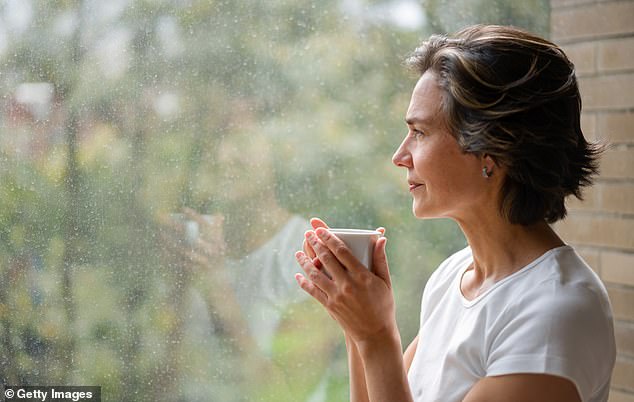Exactly how much caffeine will wake you up but not cause a crash, and when to drink it, experts say
Many of us need caffeine to survive the day, but too much can leave you tossing and turning at night and jittery during waking hours.
The FDA’s official recommendation is no more than 400 milligrams of caffeine per day for adults, which amounts to about four cups of coffee.
But how can you optimize your caffeine intake to get the most out of it?
About 100 to 150 milligrams, equivalent to one to one and a half cups of coffee, is a rough amount that will provide a healthy boost, says Astrid Nehlig, research director emeritus at the French National Institute of Health and Medical Research.
Nehlig said you’ll start to feel more awake about five minutes after drinking coffee, and that the effects will increase and peak between about 15 minutes and two hours later, depending on whether you’ve eaten and the speed of your metabolism .
The official recommendation is that adults consume no more than 400 milligrams of caffeine per day, which is equivalent to about four cups of coffee, according to the FDA.
But too much can lead to negative effects.
A study published last year in the New England Journal of Medicine found that when participants drank as much coffee as they wanted, they slept an average of 30 minutes less than on days when they didn’t drink coffee.
Caffeine’s impact on sleep depends on how quickly you metabolize caffeine, said Gregory Marcus, a cardiologist and professor of medicine at the University of California, San Francisco and first author of the NEJM study. The Wall Street Journal.
It can take up to ten hours for your body to completely get rid of the caffeine.
But genetic differences cause some people to metabolize it slowly or quickly, experts say.
The NEJM study found that slow metabolizers slept almost an hour less when they drank coffee, while fast metabolizers saw no change in their sleep.
Experts recommend waiting until 9:30 a.m. to 11 a.m. to have the best energy benefits and avoid the jitters.
Studies show that cortisol levels – the main stress hormone – are highest when we wake up, and drinking coffee too early increases them even more, putting us at risk for unnecessary jitters.
Studies dating back to 2009 show that cortisol levels are highest in the morning and decline throughout the day, with two major dips at approximately 9:30 a.m. and 1:00 p.m.
Amanda Maucere, a sports nutritionist in Florida, previously told the health website Well and good: ‘Although not much research has been done in humans on the interplay between coffee, cortisol and the circadian rhythm, we know enough about each individual rhythm to suggest that we should wait a little longer before drinking that first cup of coffee in the morning. is a good idea.’
She added: ‘While it helps with ‘waking up’, elevated cortisol levels also appear to be harmful during times of stress.
‘So if you combine an already elevated cortisol with an extra peak from coffee, you create an unnecessary stress response in the body.
“This reaction could be mitigated by waiting about an hour before enjoying your morning cup of coffee.”
If you’re working in the afternoon, you might be tempted to opt for a tea, which contains about a quarter of the caffeine in coffee.
While this may get you through the end of your shift, it can also make sleeping that night more difficult. The reason for this is that too much caffeine disrupts sleep by blocking receptors for the hormones adenosine and melatonin.
Six hours before bed is the optimal time to quit caffeine, or 4 p.m. for those who try to sleep at 10 p.m.
The Food and Drug Administration (FDA) says these effects should wear off within four to six hours.
But some papers – including one of 2013 – suggest that you may need to stop taking the drug even earlier to ensure a good night’s sleep.

Some experts recommend drinking your last caffeinated drink at 4 p.m., while others say you should stop at 2 p.m.
Dr. Dierdre Conroy, a sleep expert at Michigan University, recommends stopping drinking coffee eight hours before bedtime — 2 p.m. — for those who go to bed at 10 p.m.
She said: ‘People have very different sensitivities to caffeine and those who consume caffeine more often may respond differently to those who don’t drink it at all.
“But in general, our guideline is that you should eliminate all caffeinated products eight hours before bed.”
A meta-analysis of 2017 found that drinking coffee too late in the evening disrupts slow-wave sleep – the most restful period – and shortens overall sleep time.
Not getting enough sleep has been linked to a host of health problems, including heart disease, kidney disease, high blood pressure, diabetes and obesity.
The Centers for Disease Control and Prevention recommends that everyone get eight hours of sleep per night, but polls show that one in three adults doesn’t meet this threshold.
